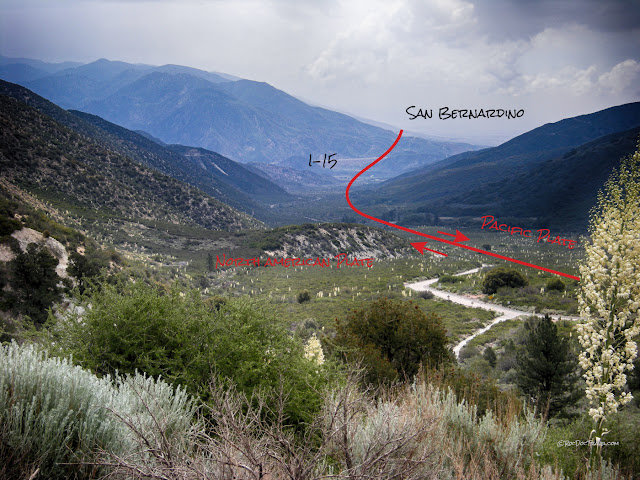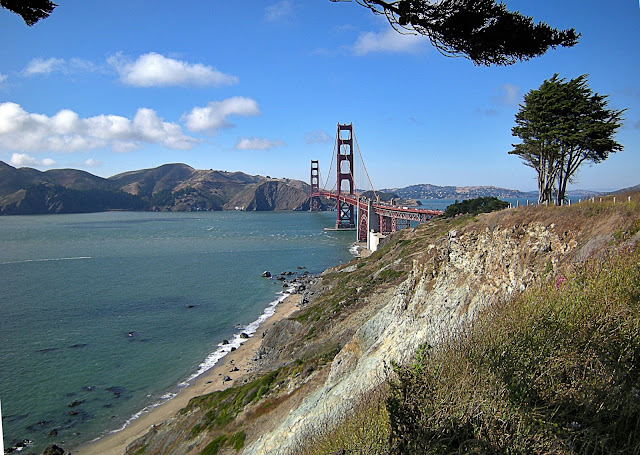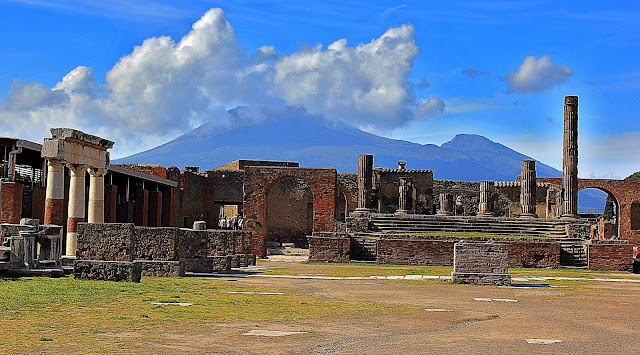Geologic Etiquette
Some outcrops are rare, unusually valuable for study, beautiful, or scientifically important. It's especially important that we do not ruin these outcrops, even if they are road cuts.
And remember, thousands of curious travelers and scientists will visit this spot after you, so don't ruin it for them! Leave it like you wish it had been left for you.
With that in mind, here are some solid Rules of Geologic Etiquette and Safety to live by:
And remember, thousands of curious travelers and scientists will visit this spot after you, so don't ruin it for them! Leave it like you wish it had been left for you.
With that in mind, here are some solid Rules of Geologic Etiquette and Safety to live by:
- If you must take a rock, take one that has already fallen.
- Don't hammer, scratch, dig, excavate, scrape, or otherwise mar the outcrop or road cut.
- Don't take any rock that is rare. I'll mention these specifically in my field trip guides.
- It is illegal to take rocks from inside any national park, and most state parks.
- Never litter. Never! Not anywhere! Not for any reason!
- Pick up litter if at a place where it's unlikely to be picked up (like outside of parks).
- If you're at a road cut, park and walk as far off the pavement as possible. Park in a visible place, not around a blind curve where your car will startle drivers. It's better to walk to the road cut rather than park dangerously.
- If at all possible, wear a reflective vest at road cuts, especially if in a group.
- Never stand in a road or on the pavement to take a picture.
- Never cross a busy highway to get to a road cut. It's not worth the risk.
- Never climb above someone else -- you may hurt them with falling rocks.
- Don't throw rocks near other people, near roads, or near vehicles.
- If using a rock hammer to break a fallen rock (we don't hammer on outcrops), wear safety glasses. Never hammer near someone else.
- Never "use the restroom" near an outcrop or road cut. Use a restroom! I've been to outcrops that smell like urine, and that is really unpleasant. I've even found worse surprises -- yuck!
- Try not to make a trail if it can be avoided. If trails already exist, try to stay on them.
- Stay off private property. Get permission first if the outcrop is important to you.
- Always obey park rules. Remember, you're not the first or last person here, and those rules were made to protect you and Nature.
Other Safety Rules:
- Don't speed on back-country, winding, or narrow roads. Oncoming cars, trucks, motorcycles, ATV's, and pedestrians can appear very suddenly, and you are quite far from medical help.
- Slow down and use caution at blind curves.
- If a back-country road is very muddy, stay off it so you don't create deep ruts. Ruts ruin the road for everyone else, and getting stuck may ruin your trip or your vehicle.
- If you're going far into the back country, don't go alone. Make sure someone knows precisely where you are and when to expect you back. Take multiple vehicles if possible. Do your homework before going.
- Keep a first aid kit with you in the car and on foot.
- A warm blanket is a good idea to have with you at any time of year.
- Keep extra water and food/snacks with you.
- Check over your vehicle, coolant, oil, belts, hoses, and tires before any trip.
- Be cautious with everyone's health and physical condition. Having trouble away from facilities and "civilization" makes every problem more serious.
- If you're with a group of more than 10, do preliminary first aid and safety training with everyone.
- Don't overestimate what children can do physically.


